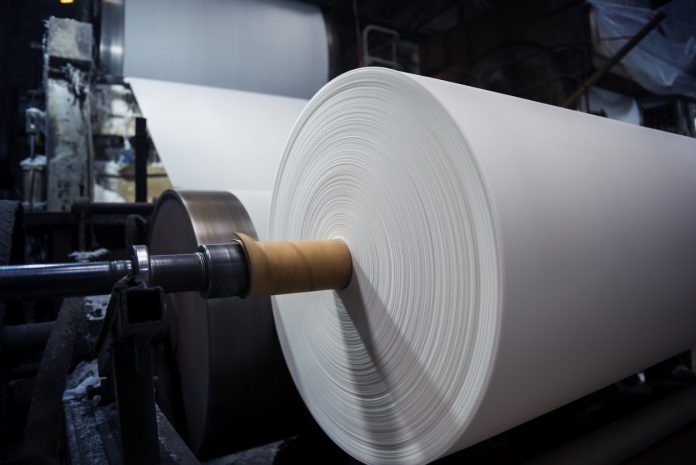By YANG, ZI HAN, Asia Correspondent, The European Business Review
The recent inauguration of the Taiwan Carbon Solution Exchange (TCX) marked a monumental step in Taiwan’s commitment to achieving carbon neutrality by 2050. The nation’s first carbon exchange, TCX, is designed to facilitate carbon credit trading, offering carbon consultancy, education, and training to businesses. This initiative not only aligns with global sustainability efforts but also highlights Taiwan’s determination to create a greener and more prosperous future. This article is going to dive into the unexpected alliance between carbon trading and Taiwan’s pulp and paper industry, and the sustainable transformation happening there.
Carbon Trading and the Pulp and Paper Industry
At first glance, the pulp and paper industry might not be the most intuitive beneficiary of carbon trading. Often associated with deforestation, clearcutting, and significant carbon emissions, this industry appears to be at odds with carbon neutrality goals. However, a closer examination reveals a unique synergy between carbon trading and the industry’s potential to become an environmental steward through voluntary carbon markets.
In voluntary carbon markets, like Taiwan’s, entities that possess carbon sinks—natural or human-made structures that absorb carbon dioxide and thus remove the gas from the atmosphere—hold a critical role. These carbon sinks, and carbon fixation technology, enable industries to generate carbon credits. Unexpectedly, the pulp and paper industry stands as one of the beneficiaries of this mechanism due to its extensive afforestation efforts.
The S.M.A.R.T. Goals of Cheng Loong Corp.
Cheng Loong Corp. (CLC), a prominent Taiwanese firm specializing in papermaking and conversion, exemplifies the pulp and paper industry’s commitment to sustainability. CLC’s innovative practices have earned it recognition, including being ranked on Corporate Knights’ Clean200 list and receiving the Commonwealth Magazine Excellence in CSR Award 9 times so far. The company’s sustainability strategies are built on five pillars: resource reduction, waste-to-energy conversion, smart production-sales integration, paper recycling, and advanced processes (S.M.A.R.T.).
CLC’s dedication to sustainability is evident in its transformation of approximately 1.6 million tons of recycled paper into various products. Through these efforts, CLC has mitigated an estimated 9.1 million tons of carbon dioxide emissions and preserved approximately 135,720 hectares of forests. Notably, CLC’s commitment extends throughout its supply chain, as exemplified by the ESG Supplier Conferences, where suppliers are encouraged to adhere to responsible practices.
Green energy constitutes a crucial aspect of CLC’s sustainability journey. The biogas power plant in Dayuan, operational since 2022 Q4, is anticipated to generate 19 GWh annually, resulting in a reduction of 15,500 tons of carbon dioxide emissions. CLC’s green initiatives are supported by a significant syndicated loan acquired in the same quarter of 2022, aimed at optimizing smart papermaking processes and expanding renewable energy endeavors.
In addition to operational enhancements, CLC actively contributes to societal well-being through initiatives like the “Paper Library.” This initiative leverages recovered paper resources to establish 40 paper libraries across Taiwan by 2030. The libraries not only enrich educational experiences for children in remote townships but also foster awareness of forest conservation and environmental protection.
Chung Hwa Pulp Corp’s Commitment to the Environment and Society
Chung Hwa Pulp Corporation (CHP), yet another significant player in Taiwan’s paper industry, stands as a prime example of commitment to recycling and reutilization. Recognizing the imperative of sustainability, CHP has ingeniously repurposed sludge, wood materials, bark, and plastic residue that otherwise couldn’t be recycled from used paper. Transforming these materials into alternative fuels compatible with cogeneration power generation systems, CHP has achieved remarkable results. This innovative approach has led to a reduction of 39,000 tons in coal consumption annually, effectively curbing greenhouse gas emissions and advancing the cause of environmental preservation.
In addition to its strides in sustainability, CHP has extended its benevolent reach into various aspects of community development and education. Being a business based in Hualien and Taitung, CHP takes care of the neighborhood in various ways, including sponsoring science and math tournaments and camps, in which more than 2000 students took part. CHP has not only fostered intellectual growth among students but also ignited a passion for learning in these vital fields. Furthermore, the company also provides coding education, empowering young minds with digital literacy skills crucial for the modern age.
Another particularly noteworthy collaboration would be the one with the Taiwan Photographers Union. In the Project “2022 Grow with You” this partnership created yearbooks for indigenous elementary schools situated in rural regions. Often grappling with limited resources and a dearth of students to produce yearbooks independently, these schools have found unwavering support from CHP. This endeavor not only preserves cherished memories for students but also highlights the company’s commitment to preserving local cultures and empowering marginalized communities.
A Greener and Prosperous Future
The convergence of Taiwan’s pulp and paper industry with carbon trading signifies a paradigm shift toward sustainability. Through the efforts of companies like CLC and CHP, the industry is changing its historical image and embracing a responsible approach to resource management, emission reduction, and community engagement. As Taiwan endeavors to achieve carbon neutrality, the pulp and paper industry’s adoption of carbon trading underscores its commitment to a greener and more sustainable future.
In conclusion, the marriage of Taiwan’s pulp and paper industry with carbon trading highlights the unexpected alliances that can emerge in the pursuit of sustainability. While the industry’s historical associations might raise eyebrows, its adoption of sustainable operation demonstrates a genuine commitment to transformation. As businesses in this sector actively engage in sustainable practices and innovation, they pave the way for a future where environmental stewardship and economic growth go hand in hand. By embracing carbon trading, the pulp and paper industry is believed to be contributing to Taiwan’s broader efforts to create a more sustainable and prosperous society for generations to come.





























![“Does Everyone Hear Me OK?”: How to Lead Virtual Teams Effectively iStock-1438575049 (1) [Converted]](https://www.europeanbusinessreview.com/wp-content/uploads/2024/11/iStock-1438575049-1-Converted-100x70.jpg)




